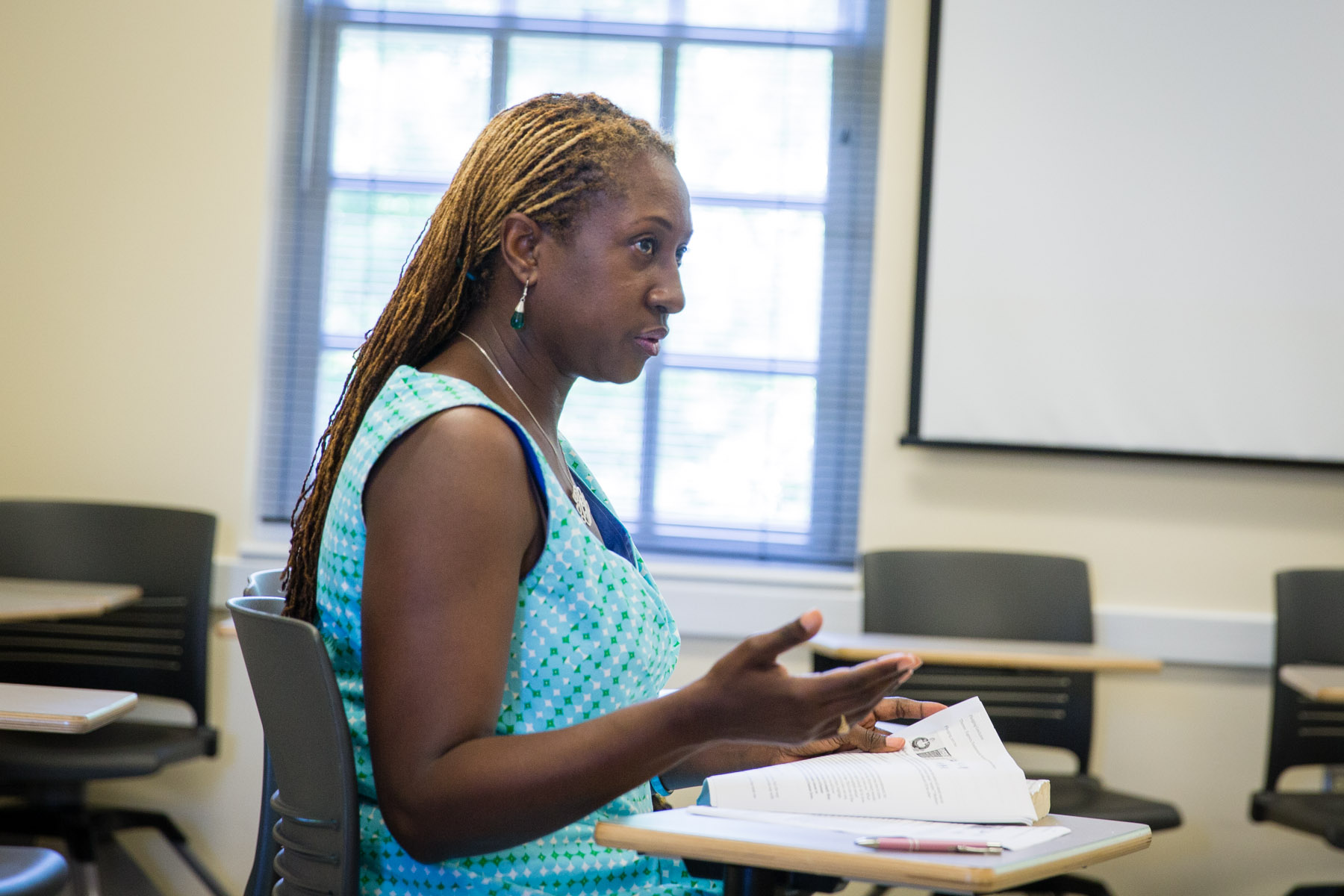In most English survey classes, the work of black women writers competes for a place in the curriculum with other, perhaps more famous names from the canon of English literature.
But in “Black Women Writers,” a summer session course taught by Lisa Woolfork, associate professor of English in the University of Virginia’s College of Arts & Sciences, students focus primarily on the diverse works that African-American female authors have produced in the last 65 years.
“The idea of the class is to try to get as much range and breadth of work as possible and to show that black women writers can produce lots of different types of work,” Woolfork said.
She launched the course with a screening of an episode of ABC’s hit drama television series, “Scandal.” Written and produced by African-American screenwriter Shonda Rhimes, “Scandal” follows the career of Olivia Pope, a fictional crisis management consultant who has personal and political ties to the White House.
Woolfork said she decided to begin the class with a screening because the show and its success “subverts and makes us think differently about how we imagine black women – not just as representations in popular culture, but producers of popular culture.”
Since their first meeting on June 10, Woolfork has challenged her students to think critically about “Scandal” as well as other portrayals of black women in popular culture and understand their connections to works by such prominent black women writers as Octavia Butler, Heidi Durrow and Martha Southgate.
Students in the course, which concludes July 6, said they appreciate the chance to engage alternative perspectives through literature.
“Having classes like these, especially ‘Black Women Writers’ … gives you a voice that’s not really heard or seen as much in English literature,” said Nick Williams, a rising fourth-year English major.
Although these works invite the students to discuss how race informs the novels and short stories of black women writers, Kristin Everett, a rising fourth-year student majoring in English and African-American Studies, emphasized that their classroom discussions touch on a variety of themes and subjects that transcend “the whole white, black-and-white dichotomy.”
Like all great works of literature, the stories of black women writers reflect on the human experience to inform anyone who reads them, not just one faction of society. “Black women writers are not just people who write stories that affect black people, but their experiences in general, as people,” Everett said.
“That’s why I really like this class,” Lauren Hudak, a rising second-year in the College, noted. “In all my other classes … when you read a story by a black woman writer or by someone of a different nationality, that’s always the lens that you see it through. And here … it’s more than that. The focus isn’t just, ‘Oh what is she saying about race?’”
Woolfork and her students also find themselves making connections between the works of these authors and writers taught in other English classes.
Kodai Iuchi, a rising fourth-year English major, said he found unexpected connections between a work featured in the class, Octavia Butler’s short story, “The Evening and the Morning and the Night,” and the works of his two favorite authors, Nathaniel Hawthorne and Edgar Allan Poe.
Hawthorne and Poe “have a love of very scary, fantasy stuff, but they are white writers from the Northeast,” Iuchi said. “But then over 100 years later, you have a black woman on the West Coast writing science fiction,” working with similar themes.
“The idea that [these] things can be in conversation with each other is pretty interesting to me,” Woolfork said.
For Woolfork and her students, the literary connections that black women writers have with their predecessors and their peers underscore the diverse spectrum of literature that black women writers are able to create.
— by Dana Cypress
Media Contact
Article Information
June 25, 2013
/content/httpwwwtodaystmj4comnewslocal212922071html

